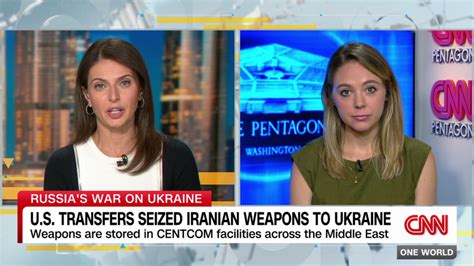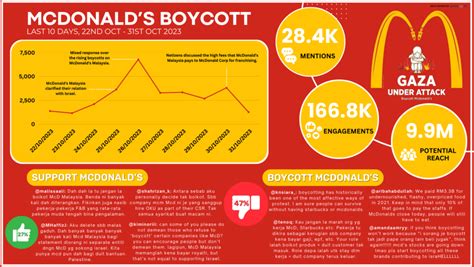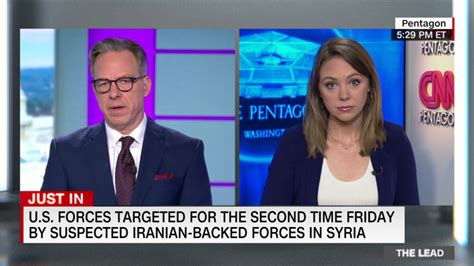
The White House has launched a scathing attack on CNN over a report suggesting the Biden administration was caught off guard by Israel’s strike in Iran, with National Security Council spokesman John Kirby publicly criticizing CNN correspondent Natasha Bertrand, accusing her of inaccurate reporting and misrepresenting the administration’s stance.
The White House is vehemently disputing a CNN report that claimed the Biden administration was surprised by Israel’s recent military action in Iran, leading to a rare and pointed public rebuke of CNN correspondent Natasha Bertrand. National Security Council spokesman John Kirby issued a forceful denial, asserting that Bertrand’s reporting was inaccurate and mischaracterized the administration’s prior knowledge and coordination with Israel. The dispute underscores heightened tensions between the White House and some media outlets amid ongoing geopolitical complexities in the Middle East.
Kirby specifically took issue with Bertrand’s assertion that the U.S. was kept in the dark regarding the specifics of the Israeli operation. He stated definitively that the administration had been informed in advance, albeit with limited details. “That report is flatly untrue,” Kirby asserted during a press briefing, emphasizing the administration’s proactive engagement with Israeli counterparts.
The CNN report, which cited unnamed sources, suggested that the Biden administration felt blindsided by the Israeli strike, leading to internal frustration and a scramble to understand the implications. Bertrand’s reporting detailed the administration’s alleged surprise and subsequent efforts to manage the fallout, which included diplomatic outreach to regional allies and attempts to de-escalate tensions. The report also highlighted concerns within the administration about the potential for the Israeli action to trigger a broader conflict.
However, the White House has vehemently denied these claims, arguing that they were fully aware of Israel’s intentions, even if the specifics were not entirely disclosed. Kirby explained that while Israel did not provide explicit details about the target or timing of the strike, they did inform the U.S. of their planned response to Iran’s earlier missile attacks. This nuanced explanation aims to clarify the administration’s position and counter the narrative of being caught unaware.
The public disagreement has raised questions about the accuracy and reliability of sources within the government and the media’s role in reporting on sensitive national security matters. It also reflects the intense pressure and scrutiny faced by both the White House and journalists covering these high-stakes geopolitical events.
The situation unfolds against a backdrop of heightened tensions in the Middle East, following Iran’s unprecedented missile and drone attack on Israel in response to a strike on the Iranian consulate in Damascus. This tit-for-tat escalation has fueled fears of a wider regional conflict, prompting urgent diplomatic efforts to de-escalate the situation.
The White House’s decision to publicly challenge CNN’s reporting underscores the importance of controlling the narrative surrounding these events. By directly addressing the alleged inaccuracies, the administration aims to reassure allies, deter further escalation, and maintain its credibility on the international stage. The incident also highlights the complex relationship between the White House and the press, particularly in times of crisis.
The disagreement also brings to the forefront the challenges of reporting on national security matters, where information is often closely guarded and sources may have their own agendas. Journalists must navigate a complex web of official statements, anonymous leaks, and geopolitical considerations to provide accurate and balanced coverage.
The White House’s strong reaction to CNN’s report underscores the sensitivity surrounding the U.S.-Israel relationship and the Biden administration’s efforts to manage the escalating tensions in the Middle East. The administration is keen to project an image of control and coordination, both to reassure allies and to deter further aggression.
The incident is likely to have repercussions for the relationship between the White House and CNN, potentially leading to increased scrutiny of the network’s reporting and reduced access for its journalists. It also serves as a reminder of the high stakes involved in reporting on national security matters and the importance of accuracy and context.
The broader context of the U.S.-Israel relationship is crucial to understanding the significance of this dispute. The two countries have a long history of close cooperation on security and intelligence matters, but there have also been instances of disagreement and tension. The Biden administration has reaffirmed its commitment to Israel’s security but has also urged restraint in its response to Iranian provocations.
The current escalation between Israel and Iran poses a significant challenge to regional stability and the Biden administration’s broader foreign policy goals. The administration is working to de-escalate tensions, prevent a wider conflict, and maintain its credibility as a mediator in the region.
The White House’s decision to publicly criticize CNN’s reporting is a high-risk strategy, as it could alienate the network and further complicate the administration’s relationship with the press. However, the administration clearly believes that the need to correct the record and control the narrative outweighs the potential downsides.
In the aftermath of the White House’s response, CNN has stood by its reporting, asserting that it is based on credible sources and provides an accurate account of the administration’s reaction to the Israeli strike. The network has defended Bertrand’s professionalism and integrity, emphasizing its commitment to fair and accurate journalism.
The dispute between the White House and CNN is likely to continue to unfold in the coming days, with both sides digging in their heels and defending their respective positions. The incident serves as a reminder of the importance of critical thinking and media literacy in navigating the complex and often contradictory information landscape.
The incident also underscores the broader challenges facing journalists in the current media environment, where they are increasingly under attack from political actors and face growing pressure to conform to partisan narratives. The ability to report accurately and independently is essential to maintaining a healthy democracy and holding those in power accountable.
The White House’s actions can be interpreted in several ways. One perspective is that the administration is genuinely concerned about the accuracy of CNN’s reporting and its potential to undermine U.S. foreign policy goals. Another perspective is that the administration is using the dispute to deflect criticism and control the narrative surrounding the escalating tensions in the Middle East.
Ultimately, the truth likely lies somewhere in between. The administration may have legitimate concerns about the accuracy of CNN’s reporting, but it is also undoubtedly aware of the political implications of the dispute. By publicly challenging CNN, the administration is sending a message to other media outlets and to the international community that it is in control of the situation and will not tolerate what it perceives as inaccurate or biased reporting.
The dispute between the White House and CNN highlights the inherent tensions between the press and the government. The press has a responsibility to hold the government accountable and to report on its actions, while the government has a responsibility to protect national security and to manage its public image. These competing interests can often lead to conflict, particularly in times of crisis.
The incident also underscores the importance of media literacy and critical thinking. In an age of information overload, it is essential to be able to evaluate sources, identify biases, and distinguish between fact and opinion. By developing these skills, individuals can become more informed citizens and make better decisions about the issues that affect their lives.
The White House’s decision to publicly criticize CNN’s reporting is a significant departure from traditional practice. Administrations typically prefer to handle such disputes behind the scenes, through direct communication with the news organization or through back channels. The decision to go public suggests that the administration is particularly concerned about the impact of CNN’s reporting and feels that it needs to take a more aggressive approach to correct the record.
The incident also raises questions about the role of anonymous sources in journalism. While anonymous sources can be valuable in providing information that would otherwise be unavailable, they can also be used to manipulate the media and to spread disinformation. Journalists must carefully vet their sources and consider their motivations before publishing information based on anonymous accounts.
The White House’s dispute with CNN is unlikely to be resolved anytime soon. Both sides have strong incentives to maintain their positions, and the underlying tensions between the press and the government are likely to persist. The incident serves as a reminder of the importance of a free and independent press in a democratic society, and the need for both journalists and government officials to act responsibly and ethically.
The impact of the White House’s actions on CNN’s credibility remains to be seen. Some observers believe that the public rebuke could damage the network’s reputation, while others argue that it could strengthen its position as an independent voice challenging the government. Ultimately, the impact will depend on how the network responds to the criticism and how it continues to cover the events in the Middle East.
The incident also raises questions about the future of U.S. foreign policy in the Middle East. The escalating tensions between Israel and Iran pose a significant challenge to regional stability and could have far-reaching consequences for the United States. The Biden administration is under pressure to de-escalate the situation and to prevent a wider conflict, but it is also facing pressure from domestic political forces to support Israel.
The White House’s dispute with CNN is just one example of the many challenges facing the Biden administration as it navigates a complex and dangerous world. The administration must balance competing interests, manage crises, and maintain its credibility on the international stage. The success of its foreign policy will depend on its ability to make sound decisions, to communicate effectively, and to build alliances with other countries.
The incident underscores the importance of transparency and accountability in government. The public has a right to know what its government is doing and why. While there are legitimate reasons to keep some information secret, the government should strive to be as transparent as possible and to provide the public with the information it needs to make informed decisions.
The White House’s dispute with CNN is a reminder of the fragility of democracy and the importance of defending the principles of freedom of speech and freedom of the press. These principles are essential to a healthy society, and they must be protected from all threats, both internal and external.
Frequently Asked Questions (FAQs)
-
What is the core dispute between the White House and CNN?
The core dispute revolves around a CNN report, authored by Natasha Bertrand, suggesting the Biden administration was caught off guard by Israel’s recent strike in Iran. The White House, through National Security Council spokesman John Kirby, has vehemently denied the report, claiming it is inaccurate and misrepresents the administration’s prior knowledge and coordination with Israel. Kirby specifically disputes the assertion that the U.S. was kept in the dark about the specifics of the Israeli operation.
-
What specific claims in the CNN report did the White House dispute?
The White House specifically disputed CNN’s claim that the Biden administration felt “blindsided” by the Israeli strike. Kirby stated that the administration had been informed in advance of Israel’s planned response to Iran’s earlier missile attacks, although he acknowledged that specific details about the target and timing were not fully disclosed. The White House argues that they were aware of Israel’s intentions, even if the specifics were limited.
-
What reasons did the White House give for publicly criticizing CNN’s reporting?
The White House publicly criticized CNN’s reporting to correct what it perceives as inaccurate information and to control the narrative surrounding the escalating tensions in the Middle East. The administration aims to reassure allies, deter further escalation, and maintain its credibility on the international stage by projecting an image of control and coordination. They believe the need to correct the record outweighs the potential downsides of publicly challenging a major news organization.
-
How has CNN responded to the White House’s criticism?
CNN has stood by its reporting, asserting that it is based on credible sources and provides an accurate account of the administration’s reaction to the Israeli strike. The network has defended Natasha Bertrand’s professionalism and integrity, emphasizing its commitment to fair and accurate journalism. They maintain that their reporting is based on solid sourcing within the administration.
-
What are the broader implications of this dispute for the relationship between the White House and the media?
This dispute highlights the inherent tensions between the press and the government, especially during times of crisis. It underscores the challenges of reporting on national security matters, where information is often closely guarded and sources may have their own agendas. The incident could potentially lead to increased scrutiny of CNN’s reporting by the White House and reduced access for its journalists. It also serves as a reminder of the importance of media literacy and critical thinking in navigating the complex information landscape.
-
What is the context of the Israeli strike in Iran, and how does it relate to the White House’s response?
The Israeli strike in Iran followed Iran’s unprecedented missile and drone attack on Israel, which was itself a response to a strike on the Iranian consulate in Damascus. This tit-for-tat escalation has heightened tensions in the Middle East, raising fears of a wider regional conflict. The White House’s response to CNN’s reporting is partly driven by a desire to manage the narrative surrounding these events and to prevent further escalation by projecting an image of control and coordination. They want to reassure allies of their commitment to de-escalation efforts.
-
What impact could this dispute have on Natasha Bertrand’s career?
The impact on Natasha Bertrand’s career is uncertain. On one hand, being singled out by the White House could be seen as a sign of her impactful reporting and willingness to challenge official narratives. However, it could also lead to increased scrutiny of her work and potential difficulties in accessing sources within the administration in the future. Her long-term career trajectory will depend on her ability to continue producing accurate and insightful reporting despite the heightened scrutiny.
-
Does this incident suggest a change in the White House’s approach to media relations?
The White House’s decision to publicly criticize CNN’s reporting could be interpreted as a more aggressive approach to media relations. Traditionally, administrations have preferred to handle such disputes behind the scenes. The public rebuke suggests that the Biden administration is particularly concerned about the impact of CNN’s reporting and feels the need to take a more assertive stance to correct the record and control the narrative. This could indicate a shift towards a more confrontational relationship with certain media outlets.
-
What is the role of anonymous sources in this dispute, and how does it impact the credibility of the reporting?
Anonymous sources played a significant role in CNN’s reporting, providing the basis for the claim that the Biden administration was caught off guard. While anonymous sources can be valuable in providing information that would otherwise be unavailable, they can also be used to manipulate the media and spread disinformation. The reliance on anonymous sources raises questions about the credibility of the reporting, as the information cannot be independently verified. Journalists must carefully vet their sources and consider their motivations before publishing information based on anonymous accounts.
-
How does the U.S.-Israel relationship factor into this situation?
The U.S.-Israel relationship is a crucial backdrop to this dispute. The two countries have a long history of close cooperation on security and intelligence matters, but there have also been instances of disagreement and tension. The Biden administration has reaffirmed its commitment to Israel’s security but has also urged restraint in its response to Iranian provocations. The White House’s response to CNN’s reporting is partly driven by a desire to manage the optics of the U.S.-Israel relationship and to ensure that the administration’s position is accurately portrayed. Any perception of a rift between the two countries could have significant implications for regional stability.









